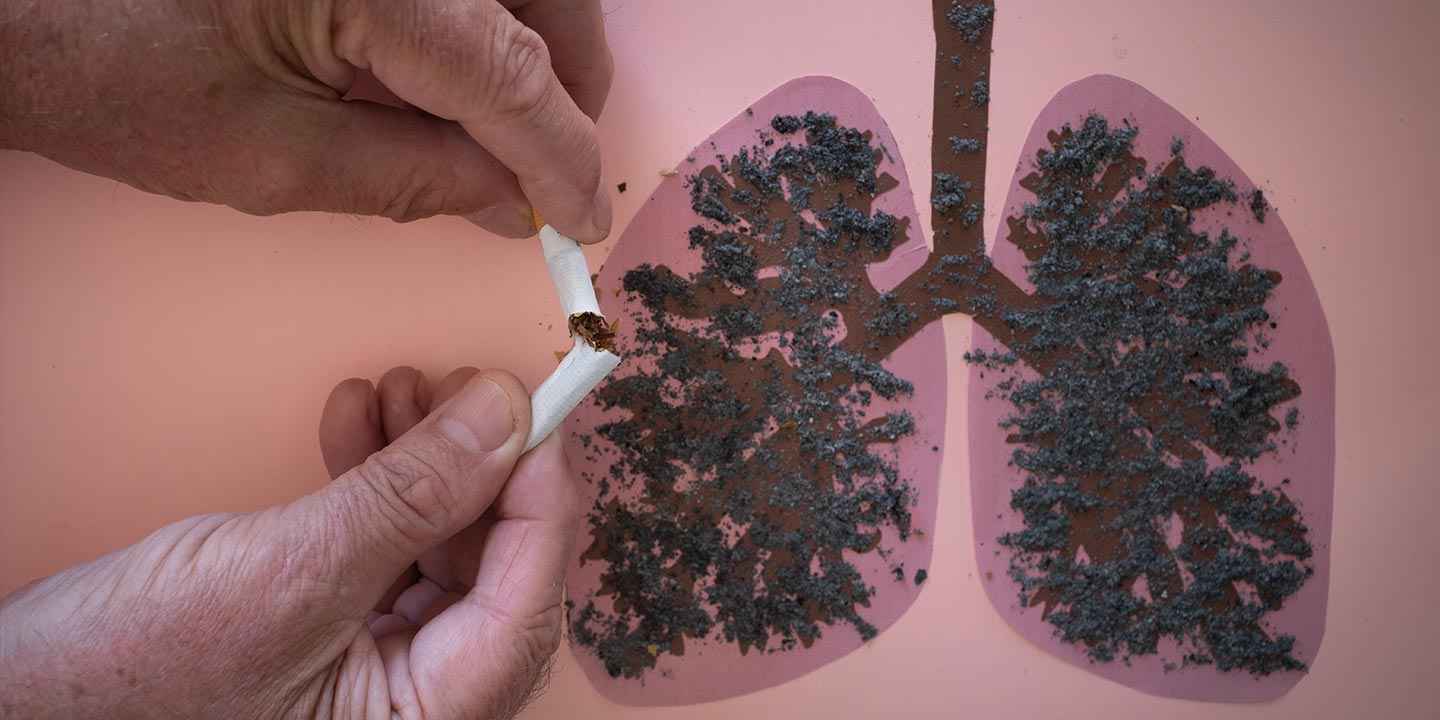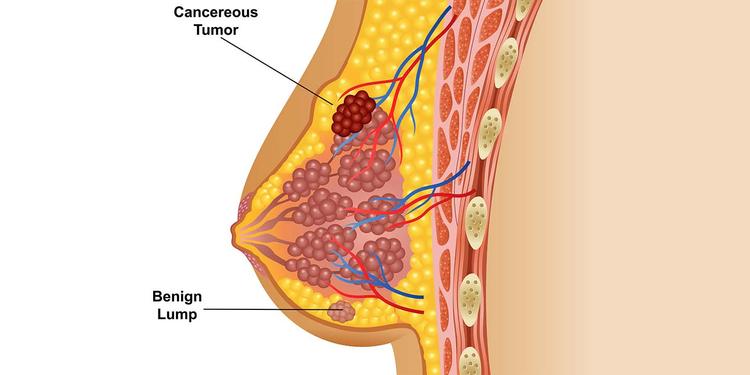Does Smoking Cause Small Cell Lung Cancer?

Medically Reviewed By
Dr. Ragiinii Sharma
Written By Prekshi Garg
on Sep 15, 2022
Last Edit Made By Prekshi Garg
on Jan 9, 2025

Small cell lung cancer (SCLC) is an aggressive form of lung cancer that grows faster than the non-small cell lung cancer (NSCLC). If not detected at an early stage, small cell lung cancer can prove to be lethal. Smoking is predominantly the main cause of small cell lung cancer, therefore, if you are a smoker and experience any symptoms in your upper respiratory system, make sure to get consultation from your doctor. Small cell lung cancer generally comprises around 10-15% of all the cases of lung cancer. The occurence rate of lung cancer in India is extremely high especially in males. According to the National Cancer Registry Programme in India, around 1 in every 68 males is diagnosed with lung cancer. With the increasing number of cases of lung cancer, it is extremely important that you know about the causes of lung cancer, especially how fatal smoking can be for your lungs.

In this article, let us talk about smoking and other causes of small cell lung cancer.
Is small cell lung cancer caused due to smoking?
Yes, smoking is one of the primary reasons for the development and progression of small cell lung cancer. Death due to smoking induced lung cancer is as high as 80%. These stats are expected to be even higher in case of small cell lung cancer. Infact, research suggests that small cell lung cancer rarely occurs in people who have never smoked in their life. Thus, the risk of small cell lung cancer is extremely high in smokers as compared to non-smokers. The more the quantity of cigarettes you smoke, and the longer you smoke, increases your risk of small cell lung cancer.
Not only cigarette smoking, but pipe and cigar smoking also make you equally prone to small cell lung cancer. Often people assume that smoking light or low tar cigarettes does not make them susceptible to lung cancer. But this is just a myth. Light and low tar cigarettes also make you equally prone to the risk of small cell lung cancer as regular cigarettes. The menthol cigarettes available in the market increase your risk of lung cancer even more as the presence of menthol allows smokers to inhale more deeply, making the tar settle deeper into the lungs.
Apart from active smoking, intake of passive smoke or secondhand smoke is also equally dangerous. Thus, when you smoke, you not only put your life at risk but the life of people surrounding you as well. Most often, even when you don’t smoke, you have an increased risk of lung cancer because of the environmental tobacco smoke. More than 7000 deaths caused due to lung cancer are because of secondhand or passive smoke.
What are the other causes of small cell lung cancer?
Although smoking is the most important risk factor of small cell lung cancer, there are still certain other causes as well that can cause small cell lung cancer.
Exposure to Radon
When the uranium present in rocks and soils breaks down it emits a radioactive gas known as radon. Radon is a natural gas that cannot be tasted, smelled, or seen. Radon is declared as the second most important cause of small cell lung cancer by the US Environmental Protection Agency (EPA). Exposure to radon is also the leading cause of small cell lung cancer among the people who do not smoke.most often, the amount of radon on the outside is limited, thus, it is probably not very dangerous. However, radon can be more concentrated indoors and breathing radon exposes your lungs to a certain amount of radiation. Thus, radon exposure can lead to small cell lung cancer in some cases.
Exposure to asbestos
Asbestos is most often exposed to people due to their occupation. People working in mines, textile plants, mills, shipyards, and places with insulation are more frequently exposed to asbestos and thus have a higher risk of developing lung cancer. On top of that, if you have occupational exposure to asbestos and you also smoke, then you have even higher chances of developing small cell lung cancer. This has made the government to limit the use of asbestos in industrial and commercial products. Asbestos is present in various buildings, therefore, renovation, demolition, or deterioration of these buildings can release large amounts of asbestos into the environment increasing the risk of small cell lung cancer.
Air pollution
The increasing air pollution in the residential area is another cause of concern for small cell lung cancer. Therefore, people living in highly polluted areas have an increased chance of developing small cell lung cancer.
Presence of arsenic in drinking water
The chronic exposure to arsenic is also a common cause of small cell lung cancer in people who are lifetime non-smokers. The chronic exposure to arsenic can be due to occupation or because of ingestion of water contaminated with arsenic. Certain studies have seen an increase in the cases of small cell lung cancer due to arsenic exposure which is a common ingredient used in traditional Chinese medicines against asthma.
Radiation therapy to the lungs
Radiation therapy is used to treat lung cancer either before or after your treatment. Radiation therapy is rarely linked to the development of small cell lung cancer. However, in rare cases, it may cause small cell lung cancer which is different from the one which is being treated. Radiation therapy makes use of high dose X-rays that damages the DNA in rapidly dividing cancer cells, kills the lung cancer cells that are hard to see, and reduces the chances of recurrence of lung cancer.
Family history
Family history or genetic factors can also make you prone to the development of small cell lung cancer. Small cell lung cancer development due to genetic factors is more common in people who have an immediate non-smoker family member suffering from lung cancer. Certain mutations responsible for lung cancer can be inherited from the parents to the offspring. According to the data derived from the Nationwide Swedish Family-Cancer Database, the risk of lung cancer in offspring is 1.77% more in children who are born to parents suffering from lung cancer and 2.15% more in siblings. Apart from genetics, certain non-genetic factors can also influence familial forms of lung cancer like diet, lifestyle exercise, and environmental conditions.
Small cell lung cancer grows and spreads really fast which makes its early detection and treatment challenging. If an early diagnosis is made, it can help significantly in effective treatment of small cell lung cancer. Thus, you should get your health check-ups done frequently, especially if you are a routine smoker. As it is rightly said, prevention is better than cure. It is best if you quit smoking and adapt to a healthy lifestyle and diet to prevent the development of most of the common forms of cancer including small cell lung cancer.
Takeaway
Small cell lung cancer is becoming increasingly common nowadays. The increased trend of smoking including cigarette, pipe, cigar, and passive smoking, has increased the cases of small cell lung cancer considerably over the last couple of years. Smoking not only affects your health, but the health of people surrounding you as well. It is the primary cause of small cell lung cancer and thus can land you in serious and even fatal health conditions. Smoking is injurious and now that you know how devastating it can be for your health, make sure that you quit smoking right away. Also, there are some other factors as well which may contribute to small cell lung cancer, including occupational exposure, therefore, make sure you follow all safety protocols in your workplace.
Frequently Asked Questions (FAQs)
1. Which cancer most commonly develops due to smoking?
Smoking is the primary cause and main risk factor for lung cancer. It almost accounts for 80% of the cases of lung cancer.
2. How can small cell lung cancer be prevented?
Certain lifestyle and dietary changes can help prevent small cell lung cancer. These include:
- Quit smoking and stay away from tobacco
- Avoid exposure to radon
- Limit your exposure to carcinogens, that is, cancer causing chemicals
- Have a healthy diet
3. What are the common symptoms of lung cancer
Some of the common signs and symptoms of lung cancer include:
- Prolonged or untreatable cough
- Shortness of breath
- Presence of blood in cough
- Hoarseness
- Chest pain
- Bone pain
- Unreasonable weight loss
- Headache


